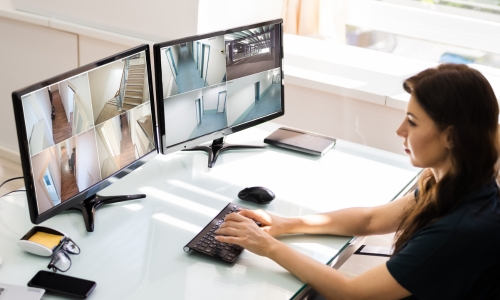Choosing the Right CCTV System for Your Home or Business: A Complete Guide to Surveillance Solutions
Introduction: Why CCTV Still Matters Today
Security is no longer a luxury—it’s a necessity. Whether you’re protecting your family at home or securing assets at your workplace, a CCTV system offers real-time monitoring, evidence collection, and peace of mind.
But not all surveillance systems are the same. With so many options in the market—wired, wireless, smart, indoor, outdoor—choosing the right one can feel overwhelming. This guide helps you understand what to consider, how different CCTV systems work, and what features best suit your home or business security needs.
1. Understanding the Different Types of CCTV Systems
Before choosing a camera, it’s important to understand the core categories available.
a. Analog CCTV Systems
Traditional wired systems that record to a DVR (Digital Video Recorder).
Best for: Budget-conscious installations with basic surveillance needs.
b. IP (Network) CCTV Cameras
Digital cameras that connect via internet/network and store footage on NVR or cloud.
Best for: Higher quality video, remote access, and smart features.
c. Wireless CCTV Systems
Connect via Wi-Fi, with minimal wiring.
Best for: Easy installation in homes or rental properties.
d. PTZ Cameras (Pan-Tilt-Zoom)
Offer motion tracking and remote directional control.
Best for: Large outdoor areas, retail stores, and parking lots.
2. Key Features to Look For in a CCTV System
The right features can significantly improve your security setup.
-
Night Vision: Infrared LEDs allow recording in low light or complete darkness.
-
Motion Detection: Alerts you when movement is detected within view.
-
HD or 4K Video Quality: Better clarity means better identification.
-
Two-Way Audio: Enables communication through the camera.
-
Cloud Storage: Saves footage securely off-site.
-
Remote Viewing: Access footage via smartphone or PC from anywhere.
-
Weatherproofing (IP66/IP67 ratings): Critical for outdoor cameras.
3. Home vs. Business CCTV: What’s the Difference?
For Homes:
-
Smaller coverage area
-
Focus on entrances, backyards, and living spaces
-
Prioritize ease of use and smartphone notifications
-
Often DIY or wireless systems
For Businesses:
-
Larger areas to monitor (warehouses, offices, parking lots)
-
Need for 24/7 recording, multiple cameras, remote access
-
Legal compliance for surveillance policies
-
Prefer wired systems with extended storage
4. Where to Place CCTV Cameras for Best Coverage
Proper placement determines how effective your system will be.
For Homes:
-
Front door and main entrance
-
Back door or side gate
-
Driveway or garage
-
Inside main living areas (optional)
For Businesses:
-
Entry and exit points
-
Reception or lobby areas
-
Cash counters and inventory rooms
-
Parking zones and perimeter walls
Tip: Use signage (“This property is under CCTV surveillance”) to deter intruders legally and ethically.
5. Legal Considerations for CCTV Installation
-
Privacy Laws: Do not record in private spaces (e.g., bathrooms, neighbor’s property).
-
Notification: In workplaces, inform employees and visitors that CCTV is in operation.
-
Data Protection: Secure recorded footage and control access.
Check your country or region’s specific surveillance regulations before installing.
6. Installation: DIY or Professional?
-
DIY Systems (mostly wireless) are good for small spaces and tech-savvy users.
-
Professional Installation is ideal for multi-camera setups, long cable runs, and commercial use.
Always ensure that the setup supports future scalability in case you want to add more cameras later.
7. Cost Breakdown: What to Expect
| System Type | Ideal For | Average Cost Range |
|---|---|---|
| Basic Analog | Homes, Small Shops | $100 – $300 |
| Wireless Kits | Homes, Rentals | $150 – $400 |
| IP Smart Systems | Offices, Stores | $300 – $1,000+ |
| Custom Commercial | Warehouses, Hotels | $1,000 – $5,000+ |
Costs include cameras, storage units (DVR/NVR), accessories, and sometimes installation.
Conclusion: Choosing What’s Right for You
A well-chosen CCTV system not only enhances security but also gives you control and confidence. Start by assessing your space, risk level, and budget. Then choose the right type of system, features, and placement to match your specific needs—whether at home or at work.
The key is not just buying the most advanced camera, but selecting a system that’s reliable, scalable, and suited to your environment.




